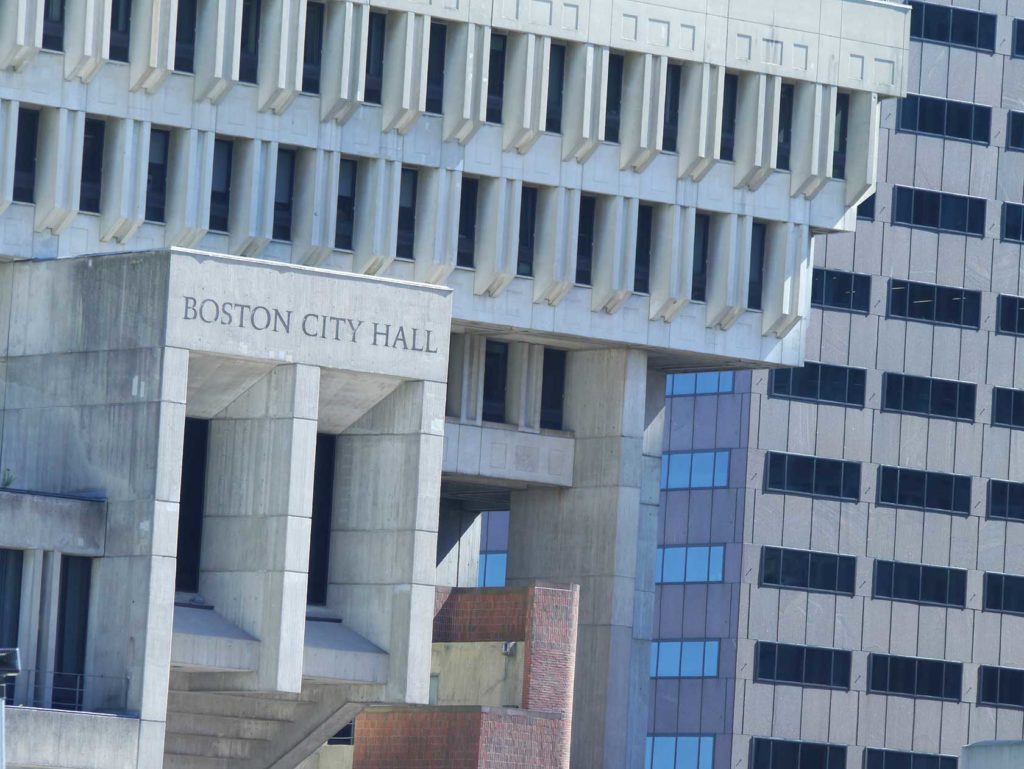Voters will decide on budget process
Question 1 would give City Council more power in shaping annual budget

Come Election Day, voters will be able to weigh in on how the city sets its budget. Ballot Question 1 looks to amend the city charter, changing the way the budget process works in order to shift some power from the mayor’s office to the City Council.
Currently, under Boston’s strong mayor system, the city council can approve or deny a whole budget but cannot make amendments.
“Our budget process is sort of a stylized game of guess-again,” said Councilor Kenzie Bok, chair of the council’s Ways and Means Committee.
Councilor Lydia Edwards, who proposed a referendum to get the question on the ballot said of the current process, “It’s more performative than anything.”
The council unanimously passed Edwards’ referendum in May.
If the ballot measure passes, reforms to the budget process would be two-fold. Firstly, it would give the council amendment power, though the council wouldn’t be able to exceed the overall total of the budget. Secondly, it would create an independent Office of Participatory Budgeting to facilitate citizen voting on the finalized budget.
This would be the first participatory budgeting in Boston’s history, aside from “Youth Lead the Change,” a small youth participatory budget program that began in 2013. Comparatively, the City of Cambridge is in its eighth participatory budget cycle, which has been successful in letting residents choose capital projects as part of city spending. Other cities such as New York, Seattle, Oakland and Chicago also employ a form of participatory budgeting.
Councilor Julia Mejia, also a member of the Ways and Means Committee, said during a tour of the neighborhoods last year, she went around to hair salons, shops and community events to ask people what they thought of the budget. She also asked if they had ever been asked what they thought of it before, with everyone answering no.
“These are your tax dollars, and you should have a say,” Mejia said.
There has been criticism of Question 1. Pam Kocher, president of the Boston Municipal Research Bureau, a watchdog group, argues that Question 1 would lead to a budget influenced by whichever councilor can make their voice the loudest.
“We’re concerned that Question 1 would, if passed, jeopardize the financial health of the city and therefore Boston residents, Boston business community, the city overall, in terms of its ability to deliver services and meet the needs of the Boston community,” Kocher said in an interview. “This just puts a whole lot more people involved in a financial leadership issue that could create a lot of opportunity for special interest and less accountability to the taxpayers.”
Kocher also mentioned “chaos” and “confusion” that would be caused if an amendment process were instated.
All councilors who spoke to the Banner for this story disagreed with Kocher’s view. Some said special interests have already made their way into the budget process — it just happens behind closed doors. Edwards said that under the status quo, mayors are able to put in budget items for their “friends” and people who promise good political deals.
“Their definition of ‘chaos’ is too many people actually having a voice. And I find that to be my definition of democracy,” Edwards said. “So if democracy is chaotic for the Municipal Research Bureau, then they need to acknowledge they really don’t want more people to have power … They now only have to donate, to butter up, to stroke the ego of one person, and that’s the mayor of Boston.”
Councilor Bok echoed that sentiment, saying, “Constituents would see us making those decisions and priorities in the light of day and needing to build consensus and a majority around them. And I think that’s the kind of transparency and accountability in city budgeting that residents of Boston deserve.”
Councilors cited being able to work with one another to create legislation and argued that the budget process would be no different.
“I actually believe you can build coalition and go back and forth and get to a compromise budget if you allow for compromises,” Edwards said.
Both Edwards and Bok also mentioned the charter amendment potentially making the process more efficient. With the ability to make changes and come to a consensus, the hope is that deadlock would be prevented.
“I’ve had two years running now where the question of whether we would get a budget passed in time for July 1 was very much in doubt. And I don’t think that’s good for the fiscal health of the city,” Bok said.
In addition, the hope is that more line items close to constituents’ hearts, like police reform and affordable housing, will be able to make it into the budget under the Question 1 reforms.
“It’s going to push the district councilors to take on a more of a city-as-a-whole mindframe, because if we’re fighting for violence prevention dollars, if you live in West Roxbury or Roxbury, violence should be a priority for you, too. And it’s about encouraging people to see that,” Mejia said.
“It’s about the coalition-building in front of the people with their money. And if we can get that coalition together as a city council, even if the mayor doesn’t like what we’re doing, we could say, ‘I’m sorry, we’re coming back and overriding your veto,’” Edwards said.
Question 1 will appear on the ballot with a summarized version of the charter amendment. Voters will be asked to vote yes to make the change or no to reject the change.






